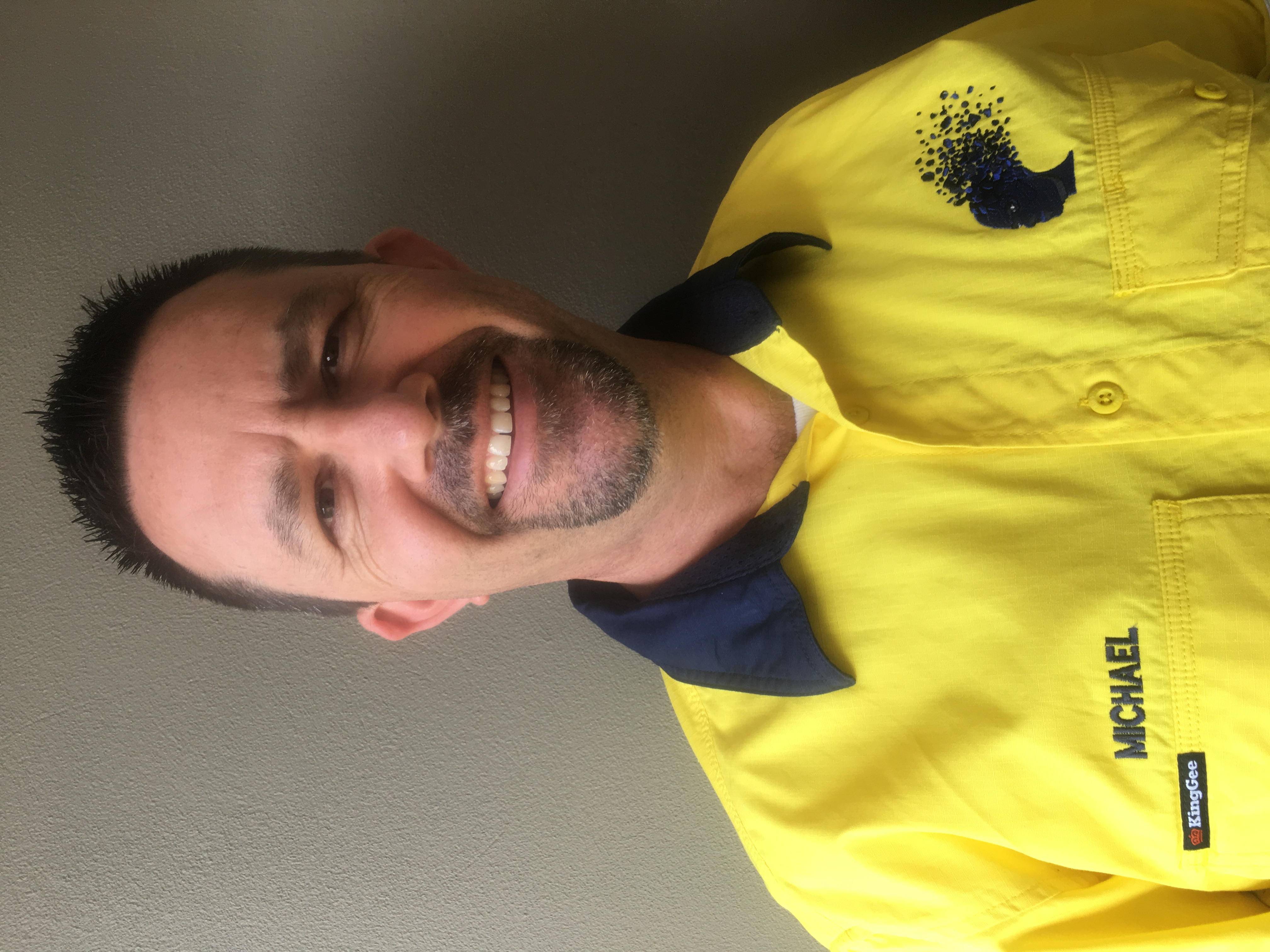Beyond Blue Speaker, Michael Weston, shares his journey and well-being tips.

Michael Weston, a Beyond Blue Speaker, has worked in the mining industry for 20 years and is a Mental Health Advocate and Beyond Blue Speaker. Michael voluntarily shares his story of adversity with businesses and communities across Australia. He shares his journey and well-being tips here.
What steps did you take towards recovery?
The first step for me was getting help. I spoke to my GP and was referred to a psychologist. Next, I focused on believing in myself, being kind to myself and had belief in a holistic recovery. I also reconnected and built meaningful relationships to help me on my journey.
A key philosophy for me from my lived experience is that there is H.O.P.E. – Hold On, Pain Ends.
While self-discipline and routines are extremely important to my recovery journey and staying well, it is equally important for me to be kind to myself and have positive self-talk when I’m having an “off-day”.
I remind myself daily that I am not a machine, I am human and my best efforts for how I’m feeling on the day is good enough. Whilst these days are less common for me now, when I do have them I ensure my positive self-talk is present…“I am enough and I matter”.
If I was to single out the most important routine in my life today, I have no doubt in saying that being kind to myself and applying positive self-talk every day is something that I will not compromise on.
Is there anything (big or small) that you do on a daily or weekly basis to look after your mental health?
I’m always about the small things in life and one of those things is going for a walk every day, being mindful and using all my five (5) senses during my walk.
- Touching the sand with my feet, feeling the sand between my toes
- Listening to the wind blowing through the Sheaoak trees, dotting along the beach park
- Smelling the ocean and the seaweed
- Tasting the salt in the air
- Seeing the seagulls glide with the sea breeze
I have found that it’s all the small things I can do for myself that make the biggest difference towards me living a happy and healthy life, which contributes towards my mental health wellness.
What do you say to a mate who is struggling?
Firstly, I would approach my friend and start the conversation, ensuring the environment is quiet and private. Next, I would ask how they are and share with them that I’m worried about them and why.
"One of the most important steps is now. To actively listen to what they need to say. Not butting into the conversation by talking over them, not dismissing their feelings and not passing judgement."
The next step is one of the most important steps – to actively listen to what they need to say. Not butting into the conversation by talking over them, not dismissing their feelings and not passing judgement. Simply listening with the correct eye contact, body language and adding short confirmation replies to show that I understand and have heard them. (These applications may need to be altered for some cultural backgrounds).
If I was really concerned, then I would ask the question whether they were considering suicide. Do you think you feel like hurting yourself or taking your life? Do you feel that you may want to hurt others?
I would share with them that speaking from personal experience, seeking the help from my GP was the biggest life changing step I had taken, and encourage them to visit a GP.
I would remind them that I am here to support them in confidence, remind them that they matter and of HOPE. There is no shame, it’s all about you being supported to feel good again. I encourage you to take that step.
Local support services are available and can be reached on:
- Telephone counsellors: 0800 LIFELINE (0800 543 354) or text ‘HELP” to 4357
- Mental Health Foundation of New Zealand crisis contacts.






